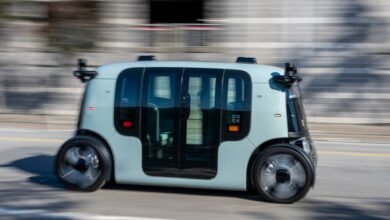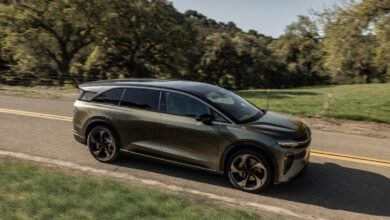Zoox Recalls Robotaxi Software Again After Crash Incident

▼ Summary
– Zoox issued its second voluntary software recall in a month after a collision between its unoccupied robotaxi and an e-scooter rider in San Francisco on May 8.
– The May 8 incident involved the Zoox vehicle braking to yield at an intersection before being struck by the e-scooter, though the vehicle later moved without further contact.
– This follows an earlier recall of 270 vehicles after a Las Vegas crash raised concerns about the software’s ability to predict other road users’ movements.
– Zoox released a software update to improve perception tracking and prevent vehicle movement when vulnerable road users are nearby.
– The company did not respond to inquiries about the recall’s scope or differences from the previous update, and TechCrunch reached out to regulators for more details.
Zoox has issued another voluntary software recall for its autonomous vehicles following a collision involving one of its robotaxis in San Francisco. This marks the company’s second safety-related update in just a month, raising questions about the reliability of its self-driving technology.
The most recent incident occurred on May 8 when an unoccupied Zoox vehicle, traveling at low speed, braked to yield at an intersection before being struck by an e-scooter. According to the company, the robotaxi was stationary at the moment of impact, but it later began moving again—a behavior that could pose risks to nearby pedestrians or cyclists. The e-scooter rider sustained minor injuries but declined medical attention.
This recall follows another recent software update prompted by a crash in Las Vegas, where a Zoox vehicle failed to accurately predict the movements of another car. The recurring issues suggest ongoing challenges in how the company’s autonomous systems interpret dynamic road conditions.
In response, Zoox has rolled out a new software patch aimed at improving object detection and preventing unintended vehicle movement when vulnerable road users—such as cyclists or pedestrians—are nearby. The company has also shared incident data with regulators, though details on the scope of the recall remain unclear.
The situation echoes past struggles in the robotaxi industry, most notably Cruise’s high-profile setbacks after one of its vehicles dragged a pedestrian last year. Unlike Cruise, Zoox has avoided regulatory shutdowns so far, but repeated software recalls could erode public trust in its technology.
Earlier this year, Zoox addressed another safety concern—unexpected hard braking—after two incidents involving motorcyclists colliding with test vehicles. The company has yet to clarify whether the latest update addresses similar braking behaviors or focuses solely on post-collision movement.
As autonomous vehicle developers push toward commercialization, safety remains the biggest hurdle for widespread adoption. Zoox’s repeated recalls highlight the fine balance between innovation and reliability—one that regulators and competitors will be watching closely.
TechCrunch has reached out to the National Highway Traffic Safety Administration for additional details on the recall but has not yet received a response.
(Source: TechCrunch)





